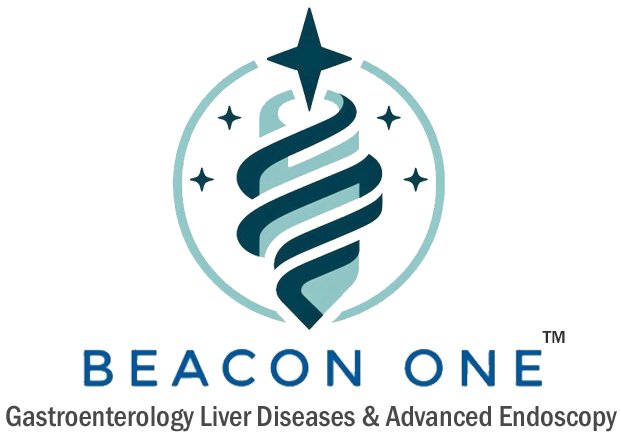Jaundice, characterized by the yellowing of the skin and the whites of the eyes, is a visible sign that something is affecting the body’s ability to process bilirubin. Bilirubin is a yellow pigment produced when old red blood cells break down. While jaundice itself is a symptom, not a disease, identifying and treating its underlying cause is paramount. For those in Nagpur experiencing jaundice, prompt medical evaluation and effective Jaundice Treatment are available through skilled specialists and advanced facilities.
Understanding Jaundice and Its Causes
Jaundice occurs when there’s an excess of bilirubin in the blood, a condition called hyperbilirubinemia. This can happen for several reasons, broadly categorized into three types:
- Pre-hepatic Jaundice: Occurs before the liver processes bilirubin. This is often due to an increased breakdown of red blood cells (hemolysis), overwhelming the liver’s capacity.
- Hepatic Jaundice: Arises from problems within the liver itself, affecting its ability to process bilirubin. This is often linked to various Liver Diseases such as hepatitis (viral, alcoholic, or autoimmune), cirrhosis (scarring), or liver cancer.
- Post-hepatic Jaundice (Obstructive Jaundice): Happens after the liver has processed bilirubin, but there’s a blockage in the bile ducts that prevents bile (containing bilirubin) from draining into the intestines. Common causes include gallstones, tumors in the bile ducts or pancreas, or strictures (narrowing) of the bile ducts.
Recognizing the Signs of Jaundice
The most obvious symptom of jaundice is the yellow discoloration of the skin, eyes, and mucous membranes. Other associated symptoms may include:
- Dark urine (due to excess bilirubin being excreted by the kidneys)
- Pale or clay-colored stools (if bile flow is blocked)
- Itching (pruritus)
Depending on the underlying cause, other symptoms like abdominal pain, fatigue, fever, or weight loss might also be present.
Diagnosing the Root Cause: A Crucial Step
Since Jaundice Treatment directly addresses the underlying condition, accurate diagnosis is vital. The diagnostic process typically involves:
- Medical History and Physical Examination: Your doctor will ask about your symptoms, lifestyle, medications, and medical history. A physical exam will assess the degree of jaundice and look for other signs of liver or gallbladder problems.
- Blood Tests: These are essential to measure bilirubin levels (total, direct, and indirect), assess liver function (liver enzymes), and check for indicators of specific Liver Diseases like hepatitis viruses.
- Imaging Tests: Ultrasound is often the initial imaging test to visualize the liver, gallbladder, and bile ducts and check for blockages like gallstones. CT scans or MRI may be used for more detailed images, especially if tumors are suspected.
- Endoscopy (ERCP): Endoscopic Retrograde Cholangiopancreatography is a crucial procedure performed by an Endoscopy Specialist or Gastroenterologist when a blockage in the bile ducts is suspected. Using an endoscope and X-rays with contrast dye, the bile ducts can be visualized. This procedure can be diagnostic (identifying the location and cause of the blockage) and therapeutic (allowing for removal of stones or placement of stents to open blocked ducts).
- Liver Biopsy: In some cases, a small sample of liver tissue may be taken and examined under a microscope to diagnose specific Liver Diseases and assess the extent of liver damage.
Specialists Providing Jaundice Treatment in Nagpur
The management of jaundice requires the expertise of specialists in digestive and liver health. You can find highly qualified professionals, including:
- Hepatologist: Specializes specifically in Liver Diseases. They are experts in diagnosing and treating liver-related causes of jaundice, such as hepatitis and cirrhosis.
- Gastroenterologist: Specializes in the entire digestive system, including the liver, gallbladder, and bile ducts. They are skilled in diagnosing both liver-related and obstruction-related causes of jaundice and often perform diagnostic and therapeutic Endoscopy, particularly ERCP.
- Endoscopy Specialist: A Gastroenterologist with specialized training in performing endoscopic procedures like ERCP, which is often critical for the diagnosis and management of obstructive jaundice.
Tailoring Jaundice Treatment to the Cause
The Jaundice Treatment approach is entirely dependent on the underlying cause:
- For Liver Diseases: If jaundice is due to conditions like hepatitis or cirrhosis, treatment focuses on managing the specific Liver Disease through medications, lifestyle changes, and addressing complications.
- For Obstructive Jaundice: If a blockage in the bile ducts is the cause, treatment aims to relieve the obstruction. This is often achieved through Endoscopic procedures like ERCP to remove gallstones or insert a stent to bypass a stricture or tumor. In some cases, surgery may be required to remove the blockage or bypass the affected area.
Accessing Comprehensive Jaundice Treatment in Nagpur
Nagpur offers comprehensive services for the diagnosis and Jaundice Treatment. Hospitals and clinics in the city are equipped with the necessary diagnostic tools, including advanced imaging and Endoscopy facilities, and have experienced Hepatologists, Gastroenterologists, and Endoscopy Specialists who can provide expert care.
If you notice yellowing of your skin or eyes, or experience any other symptoms of jaundice, it is essential to seek prompt medical attention. Consulting a Gastroenterologist or Hepatologist will ensure you receive an accurate diagnosis and the most appropriate Jaundice Treatment to address the underlying cause and restore your health.

